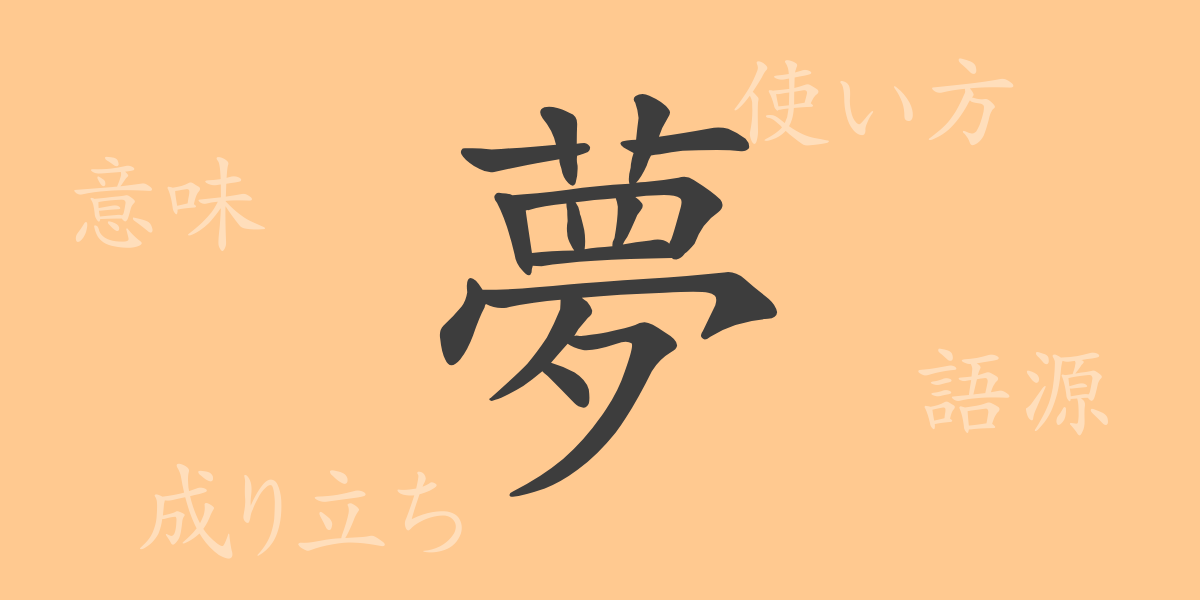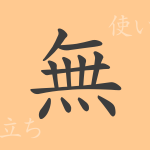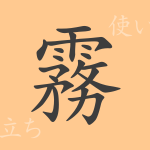Dreams, enchanting entities that grace our sleep and infuse our daily lives with hope and aspiration, are fascinating phenomena. When night falls and our consciousness sinks into deep rest, dreams guide us to different worlds. However, dreams are not merely illusions during sleep. This single character, 夢 (yume), holds profound meanings that symbolize people’s desires and goals, playing a significant role in Japanese culture and language. In this article, we delve into the charm of the common kanji 夢 (yume), exploring its etymology, meanings, usage, and idiomatic expressions related to dreams.
The Origin of 夢 (yume)
The kanji 夢 (yume) is a character that originated from ancient China, carrying a mystical background. Tracing its etymology, 夢 (yume) is composed of the elements 夕 (yuu) and 無 (mu). 夕 (yuu) signifies night, while 無 (mu) means non-existence. Thus, 夢 (yume) embodies the concept of something unreal seen at night. Over the ages, dreams have influenced people’s hearts and have been extensively used as themes in literature and art.
Meanings and Usage of 夢 (yume)
The kanji 夢 (yume) encompasses a wide range of meanings in its usage. Beyond the literal dream seen during sleep, it is also used to refer to life goals and aspirations. Additionally, it is used to describe unattainable ideals, expressed as 夢物語 (yumemonogatari), meaning a fanciful story. While 夢 (yume) often signifies hope and future prospects in a positive context, it can also be used in a negative context to imply escapism from reality.
Reading, Stroke Count, and Radical of 夢 (yume)
The kanji 夢 (yume) also reflects the beauty of the Japanese language in its reading and structure.
- Reading: In on’yomi (onyomi), it is read as “mu,” and in kun’yomi (kunyomi), it is read as “yume.”
- Stroke Count: The total stroke count of 夢 (yume) is 13.
- Radical: The radical of 夢 (yume) is 夕 (yuu), classifying it among kanji related to night or evening.
Idioms, Phrases, and Proverbs Using 夢 (yume)
There is a wealth of idioms, phrases, and proverbs in Japanese that include the kanji 夢 (yume). For instance, the idiom 夢幻 (mugen) means something insubstantial like a dream or illusion, symbolizing ephemeral things. The expression 夢見心地 (yumemigokochi) refers to a blissful, dream-like state. A proverb such as 夢は心の鏡 (yume wa kokoro no kagami) teaches that the dreams a person sees reflect their inner self.
Conclusion on 夢 (yume)
Dreams transcend mere sleep phenomena, deeply rooted in people’s psychology and culture. As a common kanji in Japanese, 夢 (yume) plays a crucial role in our language through its etymology, meanings, usage, and various idioms and phrases. Pursuing dreams enriches life, fostering creativity and hope. Cherish your dreams and take the first step towards realizing them.

























